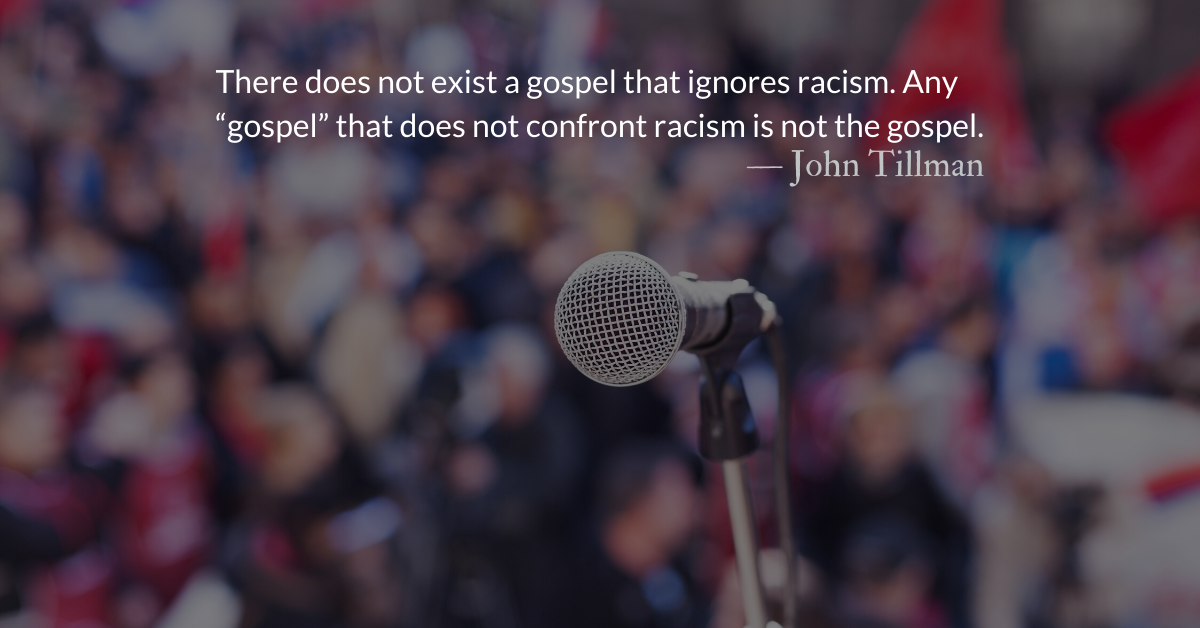We are happy to welcome ministry-focused college and seminary students from around the country to write in June of 2020 for The Park Forum. Each of them is pursuing a career in ministry and received free coaching on their writing as a part of the program. For more information about the program and a profile of each of our student writers, visit our Student Writers Month page.
Today’s student writer is Grace Sosa, a student at Logsdon Seminary.
Scripture Focus: Isaiah 34:5-7
5 When my sword has drunk its fill in the heavens,
lo, it will descend upon Edom,
upon the people I have doomed to judgment.
6 The Lord has a sword; it is sated with blood,
it is gorged with fat,
with the blood of lambs and goats,
with the fat of the kidneys of rams.
For the Lord has a sacrifice in Bozrah,
a great slaughter in the land of Edom.
7 Wild oxen shall fall with them,
and young steers with the mighty bulls.
Their land shall be soaked with blood,
and their soil made rich with fat.
From John: Today begins our first ever Student Writers Month. You won’t hear from me (except possibly in little intros like this) until July. It is a crazy and strange time in our world right now but I am thrilled with the providence of God, both for the quality of these writers you will hear from and the timing of this month-long experiment. In a panicked and fearful time, I can’t think of anyone better for us to listen to than the future ministers of tomorrow’s Church. May we listen well.
Reflection: Sacrifices that Don’t Please
By Grace Sosa
Isaiah 34 is not likely anyone’s favorite passage of scripture. Mountains soak with blood, soil turns to sulfur, and goat-demons call to each other. This passage is a prophecy of God’s judgment against Edom.
The Edomites had been an antithesis to the Israelites since Jacob and Esau. Even before the two were born, God told Rebekah, “Two nations are in your womb, and two peoples born of you shall be divided” (Gen. 25:23).
From Jacob’s line came the Israelites, and from Esau’s line came the Edomites. The Edomites denied Israel passage through their land during the Exodus (Numbers 20:14-29), and Edom gave rise to some of Israel’s greatest enemies, including the Amalekites and Agagites.
When the Israelites heard this prophecy against their enemy, they most likely rejoiced. Many years of injustices were about to be avenged.
Yet, this passage closely mirrors Isaiah 1, hearkening back to God’s judgment on Israel. In Isaiah 1, God tells the Israelites that their sacrifices will not please him unless they“seek justice, rescue the oppressed, defend the orphan, plead for the widow” (v. 17). It is not only Israel’s enemies who have been unjust but the Israelites themselves.
The prophets remind the Israelites that even though they are God’s chosen people, they are not exempt from doing what is right. In Amos 5:21-24, the prophet said God would not accept Israel’s offerings or songs unless they “let justice roll down like waters, and righteousness like an ever-flowing stream!” Jeremiah 22:3 reminds the people to enact justice for the foreigner, orphan, and widow. Maybe Isaiah’s contrast is not between an evil nation and the righteous nation of Israel. Maybe his contrast is between all nations and a completely holy God.
Might Christians today think we are pleasing God through our religious practices when we are also doing the same things we judge our “enemies” for doing? Do we welcome refugees or judge them for coming into our country? Do we seek racial justice or do we settle for being “not racist?” Do we judge our political opponents for their cutting words but then fill our social media accounts with similar language?
Let us not celebrate when bad things happen to those whom we deem evil, knowing that we have all fallen short of God’s glory. It is only through the mercy God shows again and again that we are forgiven.
Divine Hours Prayer: The Morning Psalm
Open for me the gates of righteousness; I will enter them; I will offer thanks to the Lord… — Psalm 119.19
Today’s Readings
Isaiah 34 (Listen – 2:59)
Revelation 4 (Listen – 2:09)
Read more about Pleasing Sacrifices
We have been called to imitate our self-sacrificing savior, Jesus, by giving of ourselves to do good for the benefit of others.
Read more about The Two Ariels
They brought the appropriate sacrifices to the Temple. However, prophets, priests, and people had gradually and steadily turned away from God








